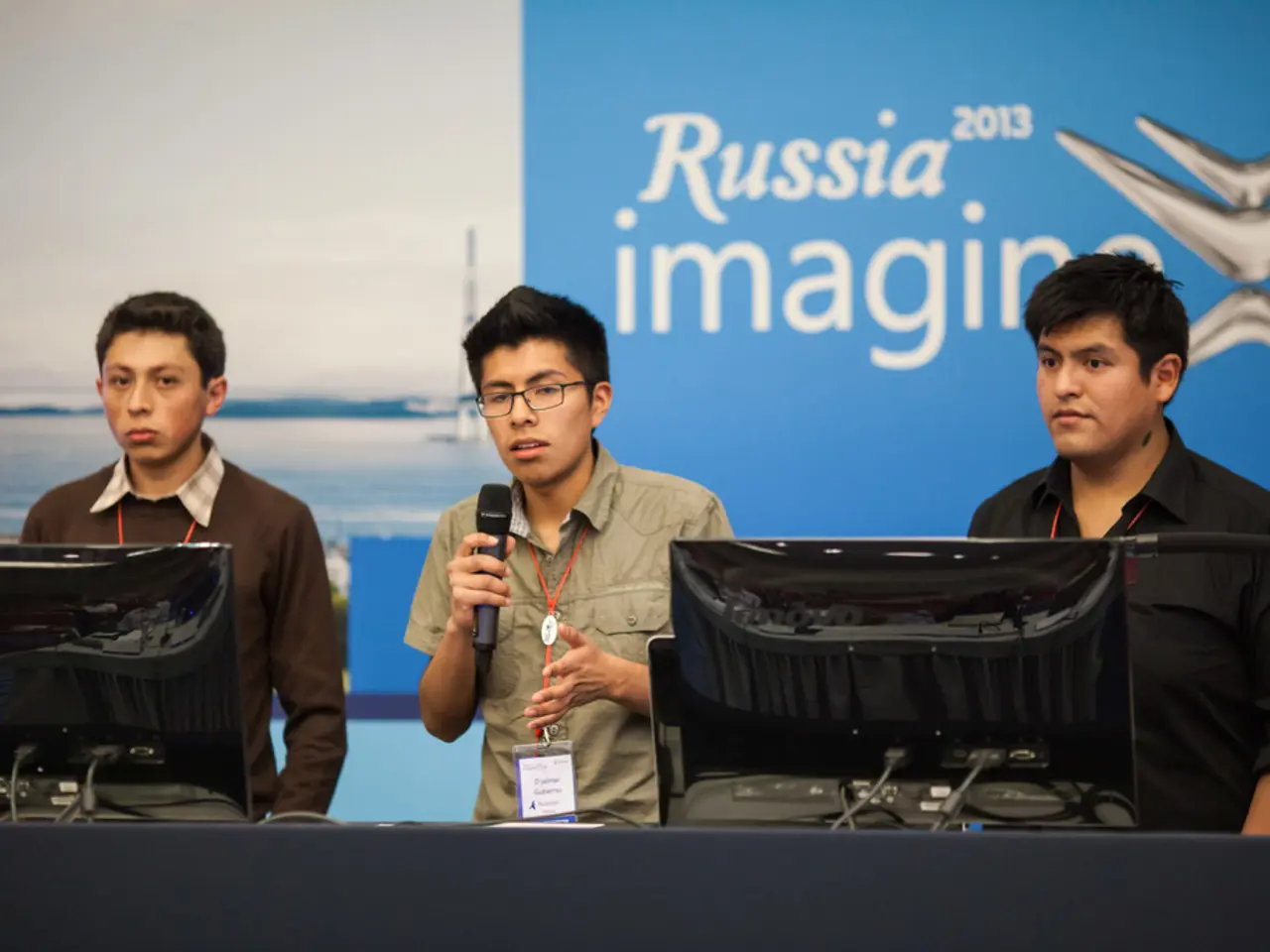Expressing affection from Alaska
In the heart of Alaska, on August 16, 2025, the highly anticipated meeting between Donald Trump and Vladimir Putin took place. Despite hopes for a peace agreement, no ceasefire or significant breakthrough was reached.
As the conflict between Russia and Ukraine continues to rage on, with active fighting particularly in key locations like Dobropillya, Pokrovsk, Chasiv Yar, and Toretsk, Russia's President Putin reiterated demands for significant territorial concessions from Ukraine. These demands included control over Donetsk and political ones such as making Russian an official language and expanding the role of Russia-linked entities in Ukraine’s governance.
Notably absent from the talks were Ukraine and its allies, raising concerns about the legitimacy and effectiveness of any agreement excluding Kyiv. Experts suggest Putin's strategy is to pressure Ukraine using military attacks and economic incentives, aiming to isolate both Ukraine and Europe diplomatically while seeking security guarantees from the West.
Trump appears to position Ukraine as an obstacle to peace, echoing prior patterns where aid to Ukraine was at times withheld. The meeting seems part of an elaborate geopolitical negotiation tactic rather than a genuine step toward peace, with Putin's demands largely unchanged and Ukraine maintaining its refusal to concede territory.
The ongoing conflict has left Russia suffering more deaths than in every Soviet and Russian war combined since 1945, while Ukraine's effective drone threats have prevented Russian forces from regaining operational maneuverability on the battlefield. Russia continues efforts to politically control all of Ukraine, not just parts like Donetsk Oblast.
The potential implications of the meeting include a continued diplomatic stalemate without Ukrainian involvement, undermining peace prospects. Russia may gain further diplomatic leverage to press territorial and political claims. The West, particularly the U.S. under Trump’s influence, may reconsider its stance toward Ukraine, which may affect military and security support.
The prospect of discussions on security guarantees for Ukraine involving European powers and the U.S., potentially akin to collective security arrangements short of NATO membership, aims to deter further Russian aggression after any future peace deal.
Looking back, Trump's previous vow of economic warfare on Russia if Putin did not change course in Ukraine remains suspended. Trump's threat was likely a tactic to pressure Putin, as his current Director of National Intelligence, Tulsi Gabbard, has a different view on Russia's interference in the 2016 election compared to Trump's previous DNI.
Trump's lack of understanding of the Ukraine conflict and his desire for a deal with Putin have raised questions about his approach to the negotiation. This was evident in his envoy's confusion about Putin's claims of sovereignty over certain Ukrainian oblasts, a confusion that persisted five months later.
In summary, the conflict remains unresolved with active fighting, and the Trump-Putin meeting in Alaska did not produce a ceasefire or significant breakthrough. Instead, it highlighted continued Russian demands and complex diplomatic maneuvering that excludes Ukraine from direct negotiation and risks complicating Western unity on support for Kyiv. The war's trajectory suggests prolonged conflict unless a more inclusive and balanced negotiation framework emerges.
- The ongoing war-and-conflicts between Russia and Ukraine have led to a complex political landscape, as Russia's President Putin continues to make demands for territorial concessions and political changes in Ukraine, even in the absence of direct negotiations with Ukraine and its allies.
- As the economy of Ukraine and Russia is heavily affected by the ongoing conflict, experts warn that the Trump-Putin meeting in Alaska, which did not produce a ceasefire or significant breakthrough, may lead to further diplomatic stalemate and potentially reconsideration of the West’s stance toward Ukraine, which could impact military and security support for general-news headlines.





